SIBBM 2024 • Frontiers in Molecular Biology
SIBBM 2024 • Frontiers in Molecular Biology
The time of Molecular Biology:
development, homeostasis and aging
The time of Molecular Biology:
development, homeostasis and aging
Trento, Italy • 17-19 June 2024
Trento, Italy • 17-19 June 2024
SIBBM 2024 • Frontiers in Molecular Biology
The time of Molecular Biology:
development, homeostasis and aging
Trento, Italy • 17-19 June 2024
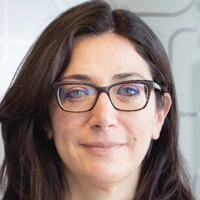 Dafne Campigli Di Giammartino received her PhD in Biology from Columbia University in New York, where she characterized the proteomic complex involved in 3’-end processing of pre-mRNAs and identified new core 3’ processing factors as well as other proteins that facilitate communication between pre-mRNA maturation and various nuclear pathways.
Dafne Campigli Di Giammartino received her PhD in Biology from Columbia University in New York, where she characterized the proteomic complex involved in 3’-end processing of pre-mRNAs and identified new core 3’ processing factors as well as other proteins that facilitate communication between pre-mRNA maturation and various nuclear pathways.
She then pursued her postdoctoral studies at Weill Cornell Medicine (NY) expanding her interest to the fields of epigenetics and stem cells: with the support of the prestigious New York Stem Cell Foundation fellowship, she studied the causal relationship between 3D chromatin architecture and transcription in the determination of cell identity. Subsequently, as a research associate at Weill Cornell, she went on characterizing enhancer-promoter networks in early embryonic development and in disease models (such as patient-derived cancer cells) aiming to identify and target core 3D regulatory nodes.
In 2022, she was awarded the Human Technopole-Early Career Fellowship to develop her career as an independent researcher. Since 2023, she has been a tenure-track Principal Investigator at the Italian Institute of Technology in Genova, where she leads the “3D chromatin conformation and RNA genomics” research line. Her lab focuses on unraveling how non-coding elements (DNA/RNA) and their epigenetic/epitranscriptomic modifications regulate the 3D genome architecture and gene expression in pluripotent cells and in cancer stem cells.
 After earning my medical degree in 2013, I joined the Neurology residency program at the University of Milan, specializing in treating patients with neurological conditions while conducting research on motor neuron diseases. At the IRCCS Fondazione Ca’ Granda Ospedale Maggiore Policlinico, I worked on utilizing 3D spinal organoids derived from stem cells to elucidate neuromuscular disease mechanisms.
After earning my medical degree in 2013, I joined the Neurology residency program at the University of Milan, specializing in treating patients with neurological conditions while conducting research on motor neuron diseases. At the IRCCS Fondazione Ca’ Granda Ospedale Maggiore Policlinico, I worked on utilizing 3D spinal organoids derived from stem cells to elucidate neuromuscular disease mechanisms.
In 2017, I was visiting postdoctoral fellow at Columbia University in New York, investigating the role of the SMN complex in spinal muscular atrophy using preclinical models. Our findings highlighted the crucial influence of post-translational modifications in determining disease phenotypes.
In 2021, I joined the Arlotta Lab at Harvard University and assumed a position as a postdoctoral research fellow at the Stanley Center for Psychiatric Research at the Broad Institute of MIT and Harvard. Here, my research efforts focused on investigating the neurobiology of development and neurodevelopmental disorders through the utilization of brain organoids. I pioneered the development of a novel 3D human in vitro platform, aimed at probing the variability in response to different neurotoxins and therapeutics. Additionally, I worked on generating more complex brain organoid models, recapitulating the diverse cell types expected during development.
My research aims at bridging the gap between clinical neurology and neuroscience, which could pave the way for fundamental discoveries and advanced patient care.
 Originally from the USA, Maxim Greenberg completed his PhD at the University of California at Los Angeles (UCLA) in Steve Jacobsen's laboratory, where he studied DNA methylation mechanisms in the plant Arabidopsis thaliana. In 2012, he joined the lab of Deborah Bourc'his at the Institut Curie in Paris as an EMBO post-doctoral fellow. There he continued his research in the field of DNA methylation, but now in the context of mouse development. He was recruited to the French National Center for Scientific Research (CNRS) as a Tenured Researcher in 2017. Max then joined the Institut Jacques Monod in 2019, where he is set up his independent research program in mammalian epigenetics with an ERC starting grant.
Originally from the USA, Maxim Greenberg completed his PhD at the University of California at Los Angeles (UCLA) in Steve Jacobsen's laboratory, where he studied DNA methylation mechanisms in the plant Arabidopsis thaliana. In 2012, he joined the lab of Deborah Bourc'his at the Institut Curie in Paris as an EMBO post-doctoral fellow. There he continued his research in the field of DNA methylation, but now in the context of mouse development. He was recruited to the French National Center for Scientific Research (CNRS) as a Tenured Researcher in 2017. Max then joined the Institut Jacques Monod in 2019, where he is set up his independent research program in mammalian epigenetics with an ERC starting grant.
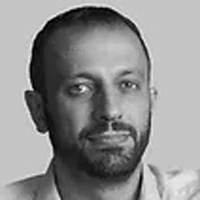 I am a Professor at Mount Sinai Icahn School of Medicine and the Director of the Center for Oncogenomics and Innovative Therapeutics (COGIT) where the main goal is to provide a platform for precision oncology drug discovery, using innovative multi-omic approaches to understand the basic mechanism of cell plasticity and identify innovative therapeutics.
I have a long-standing interest in understanding basic mechanisms of transcriptional and post-transcriptional regulation in order to identify therapeutic opportunities in oncology.
In the past 15 years I have worked in the field of Arginine Methylation and Cancer Epigenomics and Transcriptomics. In particular I focused my research on dissecting the role of oncogenic Protein Methyltransferases (PMTs), such as Protein Arginine Methyltransferases (i.e. PRMT6 and PRMT5), SET domain containing proteins (i.e. EZH2, G9a) and PRDMs (i.e. PRDM9, PRDM10 and PRDM15). As an example, we have characterized the function of PRMT5, a key enzyme playing a role in transcriptional and post-transcriptional modulation. PRMT5 is essential in regulating early embryogenesis and neural stem cell homeostasis and in cooperating with MYC to ensure that the levels of the core pre-mRNA splicing machinery are sufficiently elevated to fuel lymphomagenesis.
As an independent investigator, in the past 15 years my lab has collaborated with multiple Pharma companies to advance the knowledge of PRMT5 biology and helping their compounds progress to clinical trials, and I have been the lead PI and coordinator on multiple grants, including large collaborative efforts.
I am a Professor at Mount Sinai Icahn School of Medicine and the Director of the Center for Oncogenomics and Innovative Therapeutics (COGIT) where the main goal is to provide a platform for precision oncology drug discovery, using innovative multi-omic approaches to understand the basic mechanism of cell plasticity and identify innovative therapeutics.
I have a long-standing interest in understanding basic mechanisms of transcriptional and post-transcriptional regulation in order to identify therapeutic opportunities in oncology.
In the past 15 years I have worked in the field of Arginine Methylation and Cancer Epigenomics and Transcriptomics. In particular I focused my research on dissecting the role of oncogenic Protein Methyltransferases (PMTs), such as Protein Arginine Methyltransferases (i.e. PRMT6 and PRMT5), SET domain containing proteins (i.e. EZH2, G9a) and PRDMs (i.e. PRDM9, PRDM10 and PRDM15). As an example, we have characterized the function of PRMT5, a key enzyme playing a role in transcriptional and post-transcriptional modulation. PRMT5 is essential in regulating early embryogenesis and neural stem cell homeostasis and in cooperating with MYC to ensure that the levels of the core pre-mRNA splicing machinery are sufficiently elevated to fuel lymphomagenesis.
As an independent investigator, in the past 15 years my lab has collaborated with multiple Pharma companies to advance the knowledge of PRMT5 biology and helping their compounds progress to clinical trials, and I have been the lead PI and coordinator on multiple grants, including large collaborative efforts.
 Molecular biologist by background, got a PhD in molecular biotechnologies from the University of Siena (Italy). Did my postdoc at the Italian Institute for Genomic Medicine in the lab of Prof. Oliviero and joined the University of Torino (Italy) as adjunct professor. Moved in 2019 to Groningen (the Netherlands) as asst. professor in molecular genetics where I set up my lab. My group works at the interface of wet lab and computational biology, mostly adopting and developing NGS methods for RNA structure analysis in living cells, with particular focus on RNA structural heterogeneity and ensemble dynamics.
Molecular biologist by background, got a PhD in molecular biotechnologies from the University of Siena (Italy). Did my postdoc at the Italian Institute for Genomic Medicine in the lab of Prof. Oliviero and joined the University of Torino (Italy) as adjunct professor. Moved in 2019 to Groningen (the Netherlands) as asst. professor in molecular genetics where I set up my lab. My group works at the interface of wet lab and computational biology, mostly adopting and developing NGS methods for RNA structure analysis in living cells, with particular focus on RNA structural heterogeneity and ensemble dynamics.
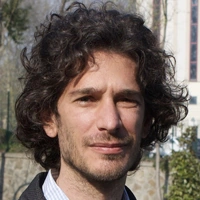 Graziano Martello is a Professor of Molecular Biology at the Department of Biology, University of Padua. His main field of research is the study of pluripotent stem cells and their use for dissecting human neurodegenerative diseases. The Martello lab (martellolab.org) performs culture, differentiation in 2D and 3D, generation and genetic modification of pluripotent stem cells. Bioinformatics analyses of multi-omic data and computational modelling are then used for the identification of genes and processes of interest. Graziano is a member of the steering committee of the The Italian Society of Biophysics and Molecular Biology (SIBBM) and routinely serves as a referee for Nature, Nature Cell Biology, Nature Communications, The EMBO Journal and for international granting agencies. Graziano is also the co-founder of DNAswitch, a startup whose mission is the development of treatments for neurodegenerative disorders.
Graziano Martello is a Professor of Molecular Biology at the Department of Biology, University of Padua. His main field of research is the study of pluripotent stem cells and their use for dissecting human neurodegenerative diseases. The Martello lab (martellolab.org) performs culture, differentiation in 2D and 3D, generation and genetic modification of pluripotent stem cells. Bioinformatics analyses of multi-omic data and computational modelling are then used for the identification of genes and processes of interest. Graziano is a member of the steering committee of the The Italian Society of Biophysics and Molecular Biology (SIBBM) and routinely serves as a referee for Nature, Nature Cell Biology, Nature Communications, The EMBO Journal and for international granting agencies. Graziano is also the co-founder of DNAswitch, a startup whose mission is the development of treatments for neurodegenerative disorders.
 Gabriella Minchiotti is Research Director and Group Leader at the Institute of Genetics and Biophysics A. Buzzati Traverso, CNR, in Naples. She received a PhD in Molecular and Cellular Genetics from the University of Naples Federico II in 1997. During her doctoral and post-doctoral studies, she has worked in National and International research centers, including the Ecole Normale Superieure, Paris and the Flemish Institute of Biotechnology), Lueven, Belgium, enriching her developmental and cell biology background. Over the years, Gabriella Minchiotti has acquired knowledge in project management and coordination, acting as Principal Investigator in national and international research projects.
Gabriella Minchiotti has worked in the field of stem cell biology over the last twenty years. Her work has elucidated key signaling pathways involved in cell fate decision during mammalian development, shedding light on fundamental processes crucial for the formation of complex multicellular organisms. She has dedicated most of her research career to studying cell plasticity in development and tissue regeneration, and understanding how cell plasticity contributes to malignant transformation. Her research team use different strategies based on development-inspired cues and unbiased high-throughput phenotypic screenings to investigate the mechanisms that control phenotypic plasticity in stem cell population and cancer cells in 2D culture and 3D self-organizing systems. One of these systems is the development of stem cell-derived embryo models - gastruloids.
Gabriella Minchiotti is Research Director and Group Leader at the Institute of Genetics and Biophysics A. Buzzati Traverso, CNR, in Naples. She received a PhD in Molecular and Cellular Genetics from the University of Naples Federico II in 1997. During her doctoral and post-doctoral studies, she has worked in National and International research centers, including the Ecole Normale Superieure, Paris and the Flemish Institute of Biotechnology), Lueven, Belgium, enriching her developmental and cell biology background. Over the years, Gabriella Minchiotti has acquired knowledge in project management and coordination, acting as Principal Investigator in national and international research projects.
Gabriella Minchiotti has worked in the field of stem cell biology over the last twenty years. Her work has elucidated key signaling pathways involved in cell fate decision during mammalian development, shedding light on fundamental processes crucial for the formation of complex multicellular organisms. She has dedicated most of her research career to studying cell plasticity in development and tissue regeneration, and understanding how cell plasticity contributes to malignant transformation. Her research team use different strategies based on development-inspired cues and unbiased high-throughput phenotypic screenings to investigate the mechanisms that control phenotypic plasticity in stem cell population and cancer cells in 2D culture and 3D self-organizing systems. One of these systems is the development of stem cell-derived embryo models - gastruloids.
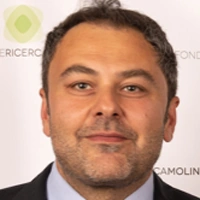 Prof. Neri obtained PhD in Biotechnology in Siena (Italy) working on embryonic stem cells epigenetics. Then he worked as postdoc between Human Genetics Foundation (HuGeF) in Torino (Italy) and the Radboud University Medical Centre, Nijmegen (Netherlands) where specialized his research on the DNA methylation specific epigenetic mark on stem cell, differentiation and colon cancer. During this period, he characterized new mechanisms of gene transcriptional regulation, developed new epigenomic genome-wide methods and identified the role of the intragenic methylation. In 2015, Prof. Neri was appointed as Group Leader of the “Epigenetics research group” at the Fritz Lipmann Leibniz Institute on Aging (FLI) in Jena (Germany). His research was supported by the Sofja Kovalevskaja starting grant of the von Humboldt foundation, and it was focused on the aging-dependent epigenetic aberrations occurring in adult stem cells promoting colon cancer. In 2021, Prof. Neri moved his laboratory at the University of Torino, where he is Full Professor of Molecular Biology and is leading the research group of Epigenetics of Aging & Cancer at the Molecular Biotechnology Center (MBC) in Torino. The current research of Prof. Neri focuses on inflammaging, intestinal aging, epigenetic drifts and how aging functionally impacts on colon cancer initiation.
Prof. Neri obtained PhD in Biotechnology in Siena (Italy) working on embryonic stem cells epigenetics. Then he worked as postdoc between Human Genetics Foundation (HuGeF) in Torino (Italy) and the Radboud University Medical Centre, Nijmegen (Netherlands) where specialized his research on the DNA methylation specific epigenetic mark on stem cell, differentiation and colon cancer. During this period, he characterized new mechanisms of gene transcriptional regulation, developed new epigenomic genome-wide methods and identified the role of the intragenic methylation. In 2015, Prof. Neri was appointed as Group Leader of the “Epigenetics research group” at the Fritz Lipmann Leibniz Institute on Aging (FLI) in Jena (Germany). His research was supported by the Sofja Kovalevskaja starting grant of the von Humboldt foundation, and it was focused on the aging-dependent epigenetic aberrations occurring in adult stem cells promoting colon cancer. In 2021, Prof. Neri moved his laboratory at the University of Torino, where he is Full Professor of Molecular Biology and is leading the research group of Epigenetics of Aging & Cancer at the Molecular Biotechnology Center (MBC) in Torino. The current research of Prof. Neri focuses on inflammaging, intestinal aging, epigenetic drifts and how aging functionally impacts on colon cancer initiation.
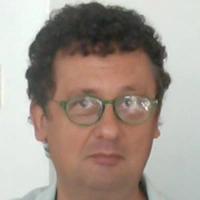 Prof. Valerio Orlando obtained his PhD in Molecular Biology at University La Sapienza in Rome Italy, then he went on for postdoc in the early days of Molecular Epigenetic at ZMBH Heidelberg (1991- 1997). He started his independent career in 1998 at San Raffaele Institute in Milan where he established the Laboratory of Epigenetics and Genome reprogramming. In 2002 he joined Telethon Foundation and he moved to IGB CNR New Campus in Naples (2002-2008) where he was founder member of the Dulbecco Telethon Institute (DTI), and later to Rome at Santa Lucia Foundation Hospital and Research Center (2008-2013). He has been a proactive member of Eu-funded initiatives on Epigenetics (Epigenome and Epigenesys Networks of Excellence) and spearheaded the First National Italy’s Flagship Project on Epigenetics (www.epigen.it). In 2013 He moved to KAUST where he founded the KAUST Environmental Epigenetics program (KEEP; keep.kaust.edu.sa).
Prof. Valerio Orlando obtained his PhD in Molecular Biology at University La Sapienza in Rome Italy, then he went on for postdoc in the early days of Molecular Epigenetic at ZMBH Heidelberg (1991- 1997). He started his independent career in 1998 at San Raffaele Institute in Milan where he established the Laboratory of Epigenetics and Genome reprogramming. In 2002 he joined Telethon Foundation and he moved to IGB CNR New Campus in Naples (2002-2008) where he was founder member of the Dulbecco Telethon Institute (DTI), and later to Rome at Santa Lucia Foundation Hospital and Research Center (2008-2013). He has been a proactive member of Eu-funded initiatives on Epigenetics (Epigenome and Epigenesys Networks of Excellence) and spearheaded the First National Italy’s Flagship Project on Epigenetics (www.epigen.it). In 2013 He moved to KAUST where he founded the KAUST Environmental Epigenetics program (KEEP; keep.kaust.edu.sa).
His lab investigates the chromatin and nuclear architecture mediated mechanisms that control and maintain cell identity and plasticity. As part of the investigation of the plastic properties of the genome in response to developmental and environmental cues, a most recent focus has been the functional role of transposable elements and in particular the RNA components involved in tissue homeostasis, resilience in aging and related pathological contexts.
Honors:
-Elected member of the European Molecular Biology Organization (EMBO) (2006)
-Awarded “Cavaliere della Repubblica” (Knighthood) by the President of the Italian Republic (2006)
-Past President of the Italian Society of Biophysics and Molecular Biology (SIBBM, 2006-2012)
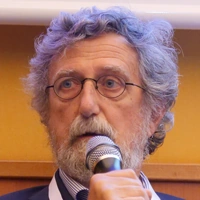 PV is the Chair of Environmental Epidemiology at Imperial College, London. His work is on environmental risks of disease including climate change. PV is in the top 20 most cited Imperial College scientists (H-index 176) and is a member of various international scientific and ethics committees (including the Committee of the US National Academy of Sciences on 21st Century Risk Assessment, and vice-chair of the Ethics Committee at the International Agency for Research on Cancer, WHO). In 2018 he has been knighted by the Italian President of the Republic. He is Fellow of Accademia dei Lincei.
PV is the Chair of Environmental Epidemiology at Imperial College, London. His work is on environmental risks of disease including climate change. PV is in the top 20 most cited Imperial College scientists (H-index 176) and is a member of various international scientific and ethics committees (including the Committee of the US National Academy of Sciences on 21st Century Risk Assessment, and vice-chair of the Ethics Committee at the International Agency for Research on Cancer, WHO). In 2018 he has been knighted by the Italian President of the Republic. He is Fellow of Accademia dei Lincei.
His latest research activities focus on investigating biomarkers from -omic platforms (including metabolomics and epigenetics) in large epidemiological studies. Overall, the main breakthroughs have been (a) the demonstration of a number of molecular alterations (miRNA, metabolomics) associated with exposure to air pollution, able to predict disease outcomes according to the concept of “meet-in-the-middle”; (b) the development of biomarkers of smoking, including the first demonstration of a methylation signature, and mutational fingerprints; (c) the development for application in epidemiological studies of “biological clocks” based on DNA methylation and metabolomics to measure biological ageing; (d) the successful promotion of the interaction between social sciences and life sciences in a large consortium on health inequalities and ageing, that applied on a large scale omic technologies to social inequalities in health. He is also active in the field of climate change and health, with original research conducted in Bangladesh that demonstrated an increased risk of hypertension in relation to salinity in drinking water due to sea level rise. A number of the research projects he has led are international in scope and collaborative in nature. He has coordinated the European Commission FP7-funded Exposomics project and the Horizon 2020-funded project Lifepath. The Lifepath project, which includes numerous studies including EPIC and MCCS, aims to understand the impact of socio-economic differences on healthy aging with an approach that considers the relative importance of effects on life; this consortium alone has resulted in over 50 publications. Currently he is co-PI of the NIHR Centre for non-communicable diseases in LMIC at Imperial College.
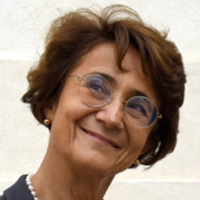 Education:
Education:
- Graduated in Biological Sciences in 1984, and obtained her PhD in Human Biology at
the University of Turin.
Previous positions:
- Post-doctoral fellow at the European Molecular Biology Laboratory (EMBL),
Heidelberg, Germany (1988-1990), and at the Columbia University, NY, NY, USA,
(1990-1992).
- Principal Investigator at the Institute for Research in Molecular Biology (IRBM),
Rome, Italy (1992-1997).
- Wellcome Trust Senior Research Fellow, Honorary Senior Lecturer and Director of the
Transgenics Unit at the University of Dundee, UK (1977-2000).
Present position:
- Molecular Biology Professor at the University of Turin since the year 2000.
- Elected member of the European Molecular Biology Organization (EMBO) in 1998
and of the Academia Europaea in 2014.
- Board member and subsequently President of the Italian Society of Biophysics and
Molecular Biology (SIBBM) (2013-2022).
- 2012-2015: member of the National Qualification Commission, Scientific Disciplinary
Sector 05/E2, BIO/11.
- 2011-2016 Member of the LS4 Panel for ERC Advanced Grants.
- 2021-2022: Coordinator of the GEV (Gruppo Esperti Valutatori) 05, Life Sciences, for
the 2015-2020 VQR.
Co-author of more than 160 publications, H-index 68, 17,929 citations (WOS).
Editorial board member of Cell Communication and Signaling, American Journal of Cancer
and Frontiers in Molecular and Cellular Oncology.
Her scientific interests focus on the molecular mechanisms determining tumor transformation
and the onset of autoimmune diseases, with particular attention to the regulation of gene
expression in inflammatory processes.
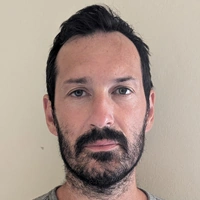 Luca Magnani graduated from his bachelor’s and master’s degree at the University of Bologna. During an exchange visit to Purdue University, he discovered his interest in early embryogenesis. Dr. Magnani’s work took him to Michigan State University, where he continued his research on mouse embryogenesis and more specifically on chromatin remodelling ATPases.
Luca Magnani graduated from his bachelor’s and master’s degree at the University of Bologna. During an exchange visit to Purdue University, he discovered his interest in early embryogenesis. Dr. Magnani’s work took him to Michigan State University, where he continued his research on mouse embryogenesis and more specifically on chromatin remodelling ATPases.
In 2009, he made a significant shift in his research focus and began to investigate how cancer cells leverage the same processes that drive development to evolve drug resistance. Working with Professor Mathieu Lupien at Dartmouth College and the University of Toronto, he unearthed new insights into epigenetic reprogramming during tumour evolution.
He started his laboratory at Imperial College London in 2013 as an Imperial College Research Fellow before becoming a CRUK fellow and the Imperial Chair in Cancer Adaptation and Evolution.
His laboratory is interested in hormone dependent breast cancer and the use of genomics and epigenomics paradigms as well as convergent science approaches to understand how the tumour starts and evolve. Their goal is to develop novel strategies to target dormant cells as they believe this could dramatically improve the outcome for hormone dependent breast cancer patients.
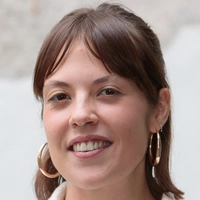 Giulia Casonato was born in Trento in 1997. She obtained her Bachelor's degree in Economic and Social Sciences from the Free University of Bolzano, followed by a Master's degree in Behavioral and Applied Economics from the University of Trento. Demonstrating a long-standing interest in social issues and public discourse, she was elected to the Trento City Council in 2020. Since late 2023, Ms. Casonato has served as the Executive Councillor for Green Transition, Digital Innovation, and Participation. In this capacity, she is responsible for the promotion of sustainable environmental policies and the advancement of technological innovation, while also facilitating active citizen engagement. Her responsibilities further extend to the promotion of the practice of ‘common goods’, equal opportunities, and nightlife social activities, with the overarching aim of fostering an inclusive and dynamic urban environment.
Giulia Casonato was born in Trento in 1997. She obtained her Bachelor's degree in Economic and Social Sciences from the Free University of Bolzano, followed by a Master's degree in Behavioral and Applied Economics from the University of Trento. Demonstrating a long-standing interest in social issues and public discourse, she was elected to the Trento City Council in 2020. Since late 2023, Ms. Casonato has served as the Executive Councillor for Green Transition, Digital Innovation, and Participation. In this capacity, she is responsible for the promotion of sustainable environmental policies and the advancement of technological innovation, while also facilitating active citizen engagement. Her responsibilities further extend to the promotion of the practice of ‘common goods’, equal opportunities, and nightlife social activities, with the overarching aim of fostering an inclusive and dynamic urban environment.
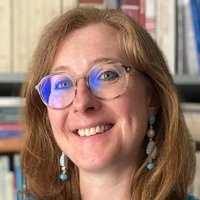 Lucia Busatta holds a PhD in Comparative and European Legal Studies, University of Trento, Italy (2012). Since 2021 she is Assistant Professor in Constitutional law at the Department of Cellular, Computational and Integrative Biology of the University of Trento, where she teaches biolaw.
Lucia Busatta holds a PhD in Comparative and European Legal Studies, University of Trento, Italy (2012). Since 2021 she is Assistant Professor in Constitutional law at the Department of Cellular, Computational and Integrative Biology of the University of Trento, where she teaches biolaw.
Her research activities involve research integrity and constitutional problems of scientific research, biolaw, healthcare law and the protection of fundamental rights. Since 2008, she collaborates to the research activities of the BioLaw Research Team at the Faculty of Law of the University of Trento.
During her academic career, Lucia has been visiting researcher at the University of Sheffield, at King's College London, at the University of Glasgow (Scotland), and at Universitat Pompeu Fabra, Barcelona (Spain).
She published an monograph one the right to healthcare (La salute sostenibile. La complessa determinazione del diritto ad accedere alle prestazioni sanitarie, 2018). Lucia presented papers and research proceedings in several conferences and seminars, both at national and international level. She also published more than 100 research articles and essays, in Italian and in English. Lucia is Associate editor of BioLaw Journal, a peer reviewed, online, high ranking law journal.
As an expert in Biolaw, she is appointed as a member of Ethics Committees.